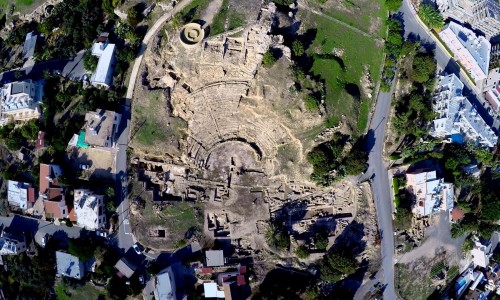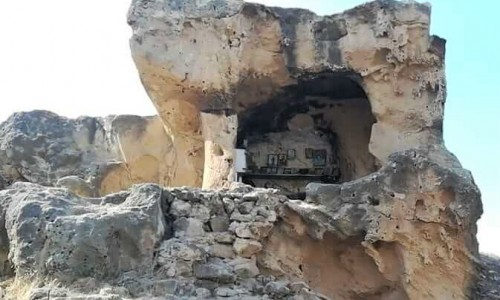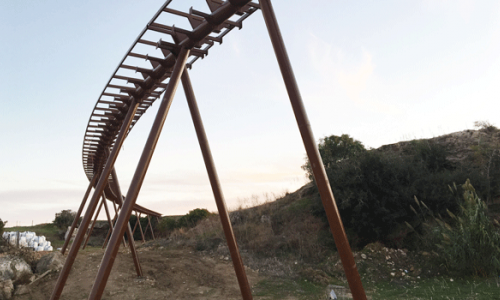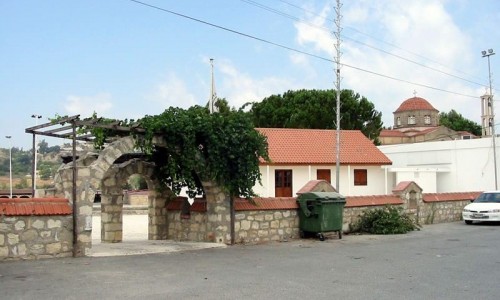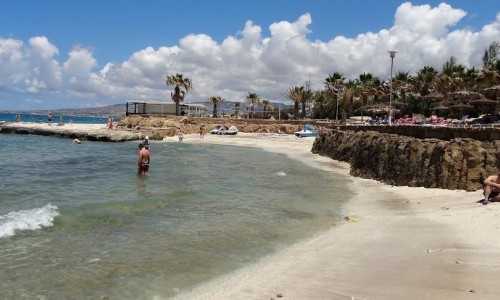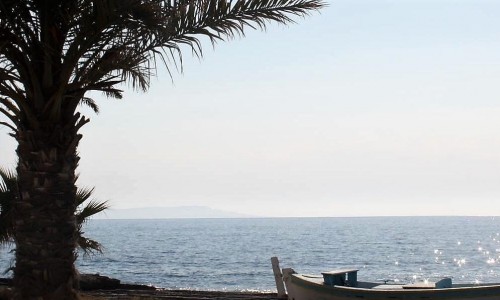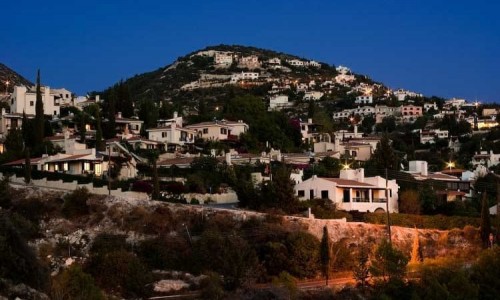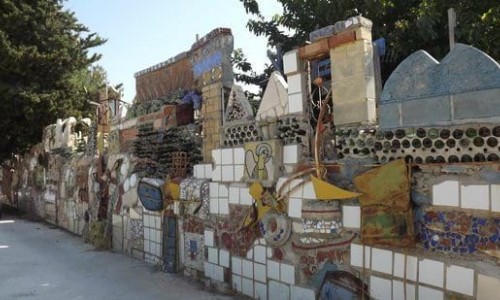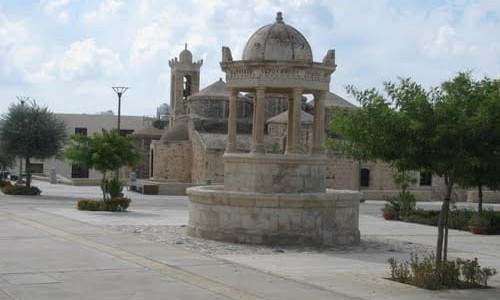Thrynia Village
In the folds of the Paphos hills lies Thrynia, a village that at first glance may seem small and unassuming, but on closer look reveals a depth of character that only places shaped by centuries of tradition can possess. Thrynia is not a village that seeks attention. It does not boast grand monuments or tourist attractions. Instead, it offers something rarer: a genuine encounter with the quiet heart of Cyprus, where life moves with patience, where nature embraces daily existence, and where the old ways still echo in the present.
A Village Woven from Stone and Memory
The architecture of Thrynia speaks softly but powerfully of the past. Houses built from local stone line the narrow lanes, their thick walls designed to keep cool in summer and warm in winter. Many roofs are covered in the familiar curved terracotta tiles of rural Cyprus, glowing warmly in the afternoon sun.
Some homes have been carefully restored, their wooden doors freshly painted in deep blues or greens, while others stand as living ruins, ivy curling through their broken windows and fig trees sprouting where kitchens once stood. These contrasts tell the story of migration, of younger generations who left for the cities or abroad, and of the elders who remained to keep the village alive.
Walking through Thrynia feels like moving through a place both lived-in and eternal—an open-air archive of resilience and belonging.
Nature’s Embrace
What makes Thrynia so captivating is not only its architecture but its setting. The village is framed by rolling hills, fertile valleys, and the shifting colors of the seasons. In spring, the hillsides burst into bloom, carpeted with wildflowers—poppies, daisies, and cyclamens—creating a painter’s palette of red, yellow, and violet. Bees hum in the almond blossoms, and the air feels charged with renewal.
Summer brings a harsher beauty: golden fields dry under the sun, cicadas fill the air with their chorus, and the scent of warm pine drifts down from the nearby slopes. Autumn softens everything—the vineyards glow in shades of amber and crimson, and the olive harvest begins, a ritual as old as the village itself. Winter, though quiet, transforms Thrynia into something mysterious: mist drifts through the hills, and the stone houses seem to huddle closer together against the cold.
Every season brings its own rhythm, and the people of Thrynia live attuned to these natural cycles.
The Church and the Spirit of the Village
At the heart of Thrynia stands its church, a modest but deeply meaningful landmark. Its bells mark the hours, but more importantly, they mark moments of shared life—feast days, weddings, funerals, and the great annual celebrations of the Orthodox calendar.
On ordinary days, the churchyard is a place of silence, its whitewashed walls bright against the sky, its wooden doors opening into cool shadows filled with the soft glimmer of icons and the faint scent of incense. But during Easter or the feast of the village’s patron saint, the stillness dissolves into life. Families return from the cities, neighbors gather in the square, and the village fills with sound: the ringing of bells, the chanting of liturgy, the laughter of children, and the aromas of shared meals prepared with care.
These moments are a reminder that while the village may be small, its heart beats strongly with community and tradition.
Life at a Slower Pace
Daily life in Thrynia unfolds slowly, shaped by a rhythm that modern cities have long forgotten. Morning begins with the crow of a rooster and the distant bark of dogs. Elderly residents can be seen tending to their gardens—watering vegetables, trimming vines, or gathering herbs for cooking. In the afternoons, the heat pushes people indoors, and silence settles over the lanes, broken only by the sound of cicadas.
Evenings, however, are social. Chairs appear outside houses, neighbors exchange greetings, and conversations drift lazily through the air as the sun sets over the hills. It is during these hours that visitors often encounter the renowned Cypriot hospitality: an offer of strong coffee, a slice of homemade cake, or a small glass of zivania, the fiery local spirit.
This hospitality is more than politeness—it is an expression of identity, of a culture that values connection, generosity, and the joy of sharing.
Festivals and Traditions
Though small, Thrynia takes pride in its traditions. Religious festivals remain central to village life, with Easter standing as the most significant. The preparation begins days before, with the baking of flaounes (traditional cheese-filled pastries), the dyeing of eggs, and the gathering of wood for the great bonfire that burns on Holy Saturday. The midnight liturgy, with candles illuminating the dark streets, creates an atmosphere both solemn and uplifting.
Other times of the year bring smaller but equally heartfelt celebrations—saints’ feast days, harvest gatherings, and weddings that unite not only families but the entire village. Music, food, and dance spill into the lanes, and for a time Thrynia becomes a place of vibrant joy.
A Haven for the Traveler
For visitors, Thrynia is not a destination of attractions to “tick off,” but a place to settle into. To walk its lanes is to step into a different rhythm of life. A short stay in one of the village’s restored stone houses can be transformative—days begin with birdsong and end under skies filled with stars unspoiled by city lights.
Exploration can be as simple as wandering through the fields, discovering small chapels hidden in the hills, or sitting on a terrace with a glass of local wine, watching the changing light across the valley. The surrounding region offers other villages, forest trails, and views that stretch all the way to the Mediterranean, but many visitors find that Thrynia itself is enough—a place where stillness becomes its own reward.
The Legacy of Thrynia
Thrynia is one of those places that reminds us what Cyprus truly is beneath the surface of modern development. It embodies the island’s rural soul: strong, enduring, shaped by land and faith, and defined by the bonds of community.
Though small in size, Thrynia carries the weight of centuries. It offers lessons in patience, in simplicity, and in the beauty of living closely with both nature and tradition. For those who come with open eyes and open hearts, Thrynia is not just a village—it is an experience of timeless Cyprus, quiet yet unforgettable.


